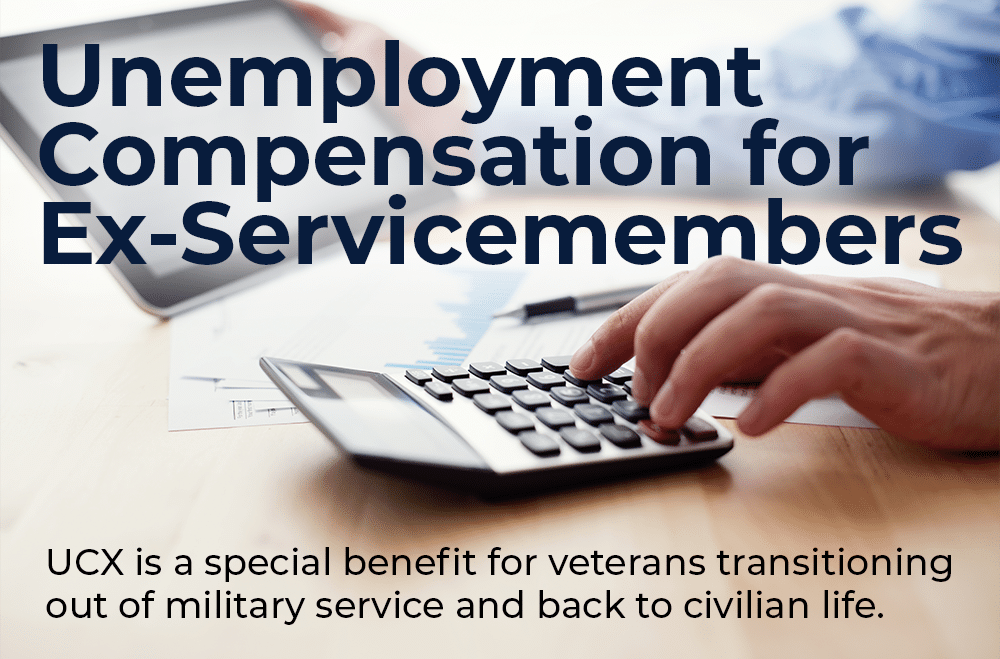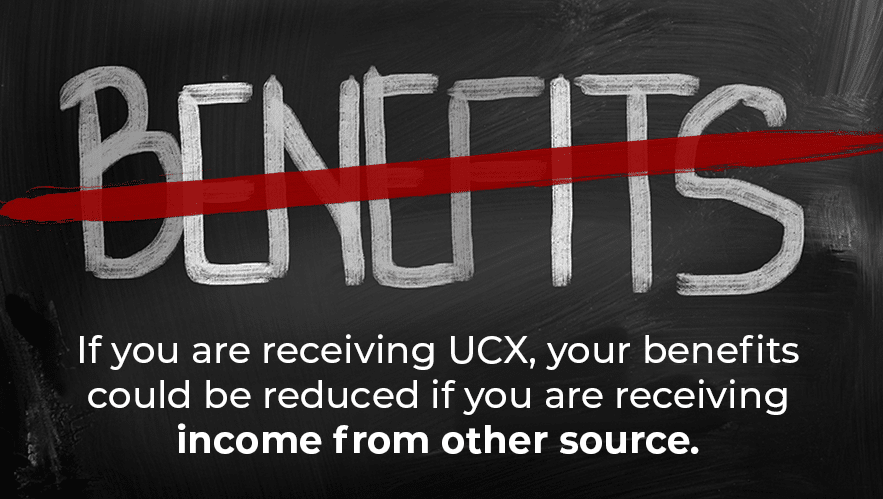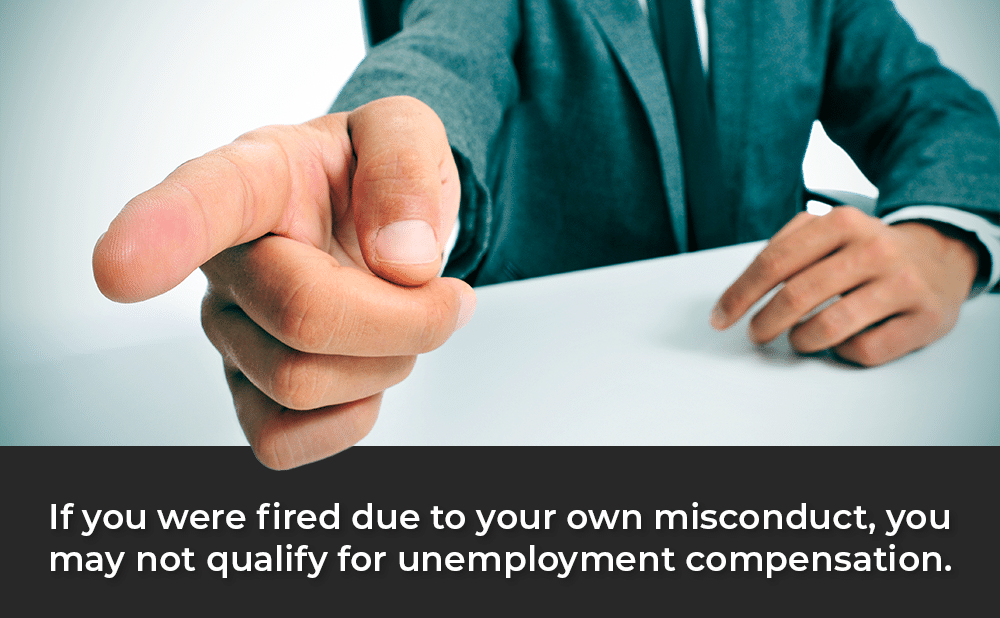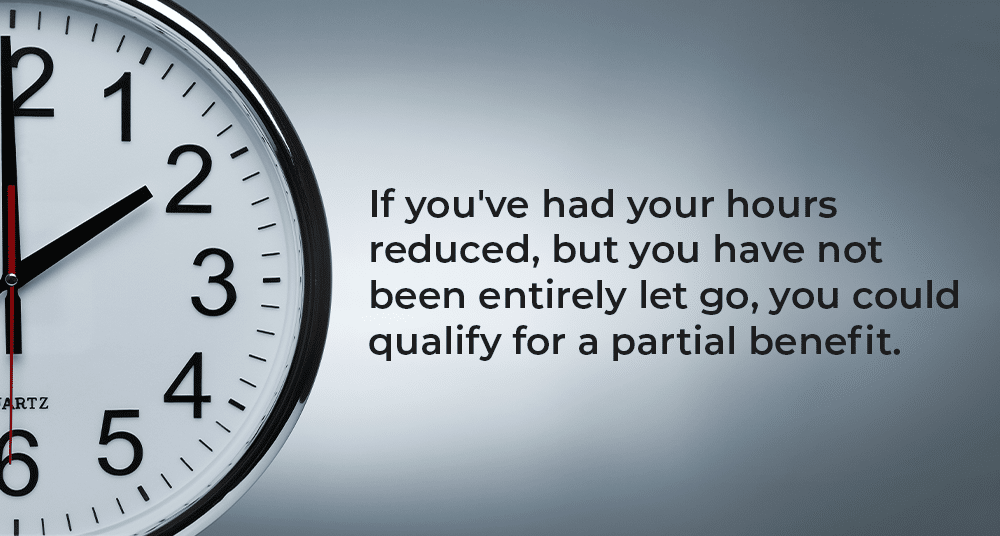Veterans unemployment benefits come in two basic categories: immediate post-separation benefits applicable only to veterans, and the regular unemployment insurance and other unemployment benefits that any non-veteran who experiences job loss would be entitled to.
Additionally, some disabled veterans are eligible for unemployability benefits, depending on the nature of their disability.
Veteran Unemployment Benefits
UCX
The first benefit for ex-service members to know about is the Unemployment compensation for Ex-Servicemembers program, or UCX. This is a special benefit for veterans transitioning out of military service and back to civilian life.
When calculating UCX benefits, the government looks at your earnings while on active duty, to include all pay and allowances, based on your final pay grade upon separation, and according to rules set by the U.S. Department of Labor.
While UCX is federally-funded, it’s administered at the state level.

UCX Eligibility
Here are the criteria to qualify for UCX benefits:
- You must live in the state where you’re applying.
- You cannot still be on terminal leave.
- You were on active duty (or on active reserve status) during the wage base period of your claim under the rules of your state. This usually means you were on active duty or active reserve status for four out of the last five completed calendar quarters before filing for unemployment;
- You must have served your full initial term of duty, or at least 180 days of active duty if you are a reservist or National Guard member. However, there are some exceptions: You may receive UCX if you were discharged early for the convenience of the government under an early release program, because of a medical discharge, pregnancy, or due to service-connected injury or disability;
- You must be engaging in an active job search;
- You must have an honorable discharge, listed on your DD Form 214 – Certificate of Release from Active Duty;
- You cannot get UCX with a discharge of “other than honorable,” a “bad conduct” discharge, or a dishonorable discharge, including one arising from a general court-martial.
- Additionally, you cannot receive UCX if you were an officer and resigned for the good of the service.
Additionally, you must meet the guidelines for unemployment benefits according to the laws in your state.

Reduction of UCX Benefits
If you are receiving UCX, your benefits could be reduced if you receive income from another source. These other sources include:
- Wages
- Severance pay
- Social Security benefits
- Training allowance
- Workers compensation
- GI Bill housing allowances
Disabled Veterans and Unemployment Benefits
Disabled veterans are eligible for vocational rehabilitation benefits via the Department of Veterans Affairs Vocational Rehabilitation and Education program (VR&E).
The VR&E program can help with job training and additional employment services for ex-servicemembers with qualifying disabilities.
Some VR&E training programs come with housing stipends, if you qualify, to supplement your regular unemployment insurance and UCX benefits.
If you are a disabled veteran, consider applying for a federal Civil Service Job. The federal government gives qualified disabled veterans a leg up when applying for civil service jobs, via the Civil Service points system. Many state governments provide a similar benefit for service-disabled veterans as well. So if you are an ex-servicemember with a qualifying disability, you have an advantage over other applicants when you apply for government employment.
VA Individual Unemployability Benefits
If you have a service-connected disability that results in you being unable to engage in gainful employment, you may qualify for VA Individual Unemployability benefits, or IU. This can result in you getting the same benefits as someone with a 100% disability rating, even if your individual medical conditions don’t add up to a 100% schedular rating.
Some people refer to IU as a “back door” to receiving full 100% total disability benefits.
To receive this benefit, you must show that your disabilities are service-connected, and that they make it impossible for you to engage in “substantial gainful employment.” That is, due to your disability incurred on active-duty, you cannot gain or keep any job that would support you at least at the federal poverty level.
CLICK HERE FOR HILL & PONTON’S COMPLETE GUIDE TO VETERANS’ INDIVIDUAL UNEMPLOYABILITY BENEFITS

Criteria for VA Individual Unemployability Benefits
To receive VA Individual Unemployability compensation, you must meet a few eligibility requirements:
If you are diagnosed with one service-connected disability, you generally must have an official VA disability rating of 60% or more for that condition.
We say “generally” here, because the VA does allow for some exemptions from these schedular requirements in certain situations.
For those diagnosed with two service-related medical conditions or more, you must generally have a combined schedular disability rating of at least 70%. Additionally, at least one of these medical conditions must rate at 40% or higher.
For the purposes of calculating unemployability, the Veterans Administration considers these combinations of injuries, wounds, or other service-related medical conditions to be a single disability:
- Disabilities arising from a single accident or a single common condition;
- Disabilities affecting a single biological system (e.g., respiratory, musculoskeletal, etc.);
- Disabilities involving one or both arms, or one or both legs – including the bilateral factor.
- Multiple disabilities incurred in action;
- Multiple disabilities incurred as a POW.
Here’s an example of how the VA calculates the unemployability benefit:
Suppose you have a back injury individually rated at 40% on the disability schedule, a 30% rating for a leg injury, and another 30% for post-traumatic stress disorder (PTSD). The VA has accepted each of these conditions as service-related.
Combining them together, your total disability rating is 100%, which meets the overall total disability threshold. Additionally, you have at least one service-related condition rated at 40% or higher – your back injury.
Lastly, you can show that your service-connected injuries make it impossible for you to attain and maintain substantial gainful employment. Since these conditions make you unemployable, you should be eligible for VA unemployability compensation.
Note: Had your back injury been rated at less than 40%, you would not have qualified for unemployability compensation at all.
Note also that age is not a factor when applying for unemployability. You can apply for and qualify for unemployability compensation at any age. The VA cannot deny your claim based on your age.
EXCEPTIONS: Extraschedular consideration and individual unemployability benefits.
In some instances, the VA will approve UI even if you don’t meet the general requirements above. To get approved, you must apply for extraschedular consideration.
This may be granted in unusual or exceptional circumstances, such as where it is clear that the disability schedular criteria don’t paint a full or complete picture of the veteran’s service-related disability.
These vary by the individual, but one example would be the need for frequent hospitalizations that prevent you from holding a regular job.
The key factor is whether you can prove your service-related conditions prevent you from gaining and keeping employment that will support you at the poverty level.
For more information, see our guide on unemployability benefits, here.

State Unemployment Insurance Benefits
These benefits are available to veterans and non-veterans alike. Every state has its own unemployment insurance rules. But generally, state unemployment benefits are available for workers who have lost their jobs or who have had their hours reduced. In most cases, you must show that you are actively engaged in a job search, in order to continue receiving unemployment compensation.
The amount you will receive also varies by state, but there is typically a monthly or weekly cap on unemployment compensation. You can expect unemployment benefits to be much lower than the amount you were getting paid while working.
Depending on your state, you may not receive unemployment compensation if you were a seasonal worker or an independent contractor.
Like UCX, unemployment compensation may be reduced if you are earning money from another source. Note that most states will require you to declare earnings in the week in which you earned them, even if you don’t expect them to be paid out for another week or more.
Fired for cause
If you were fired due to your own misconduct, you might not qualify for unemployment compensation.
You also won’t qualify for unemployment benefits if you voluntarily quit your job, except where there may have been a constructive discharge. This may occur if your employer has made your working environment so intolerable that no reasonable person would remain. For example, a pattern of repeated sexual harassment or racial discrimination, and the failure of management to respond could contribute to a constructive discharge argument.

Unemployment insurance and your base period
Your base period is the period of time that your state looks at your earnings history to calculate your unemployment benefits. Most of the time, the base period is the first four of the last five completed quarters before the job loss.
Some states grant exceptions for those with longer job absences or periods out of work. For example, you could be entitled to an extended base period.
Your state may have an earnings requirement, as well. Some states impose a minimum level of wages throughout the base period to qualify for benefits. Others require you to make a minimum wage level during your highest-paid quarter to receive unemployment benefits. And some states require elements of both.
For the most accurate and up-to-date information, contact your state employment office for specific details on how benefits are calculated in your state.
Your state employment office and the Department of Labor also have resources to help you locate a new job.
Eligibility for Unemployment insurance
When applying for unemployment benefits, expect to provide the following information:
- Identity of previous employer(s)
- Last day of work
- Reason for job loss (layoffs, coronavirus, business closed down, etc.)
- Gross (before tax) earnings your last week
- Citizenship or residency status
- For aliens, a copy of your green card or other employment authorization document.
- Your DD-214, if your unemployment claim is due to separation from the military.
- Earnings data for several previous weeks (usually found on pay stubs or via bank statements).
If you’ve had your hours reduced, but you have not been entirely let go, you could qualify for a partial benefit.

Unemployment and COVID-19
In March of 2020, Congress passed the CARES Act, which – among other benefits – also provided for expanded unemployment benefits for workers who lost their jobs due to the Coronavirus and related shutdowns.
Specifically, Congress authorized an additional $600 per week, on top of every state’s maximum unemployment benefits cap, with an additional 13 weeks of benefits.
Additionally, unlike most state unemployment benefits, Congress made that benefit available to more than just statutory employees, and included independent contractors, sole proprietors, and gig workers.
However, that particular benefit expired on July 31st, 2020.
During the COVID-related shutdowns, Congress also granted additional flexibility for the states to provide additional benefits, or grant longer benefit durations.
For example, states can grant benefits to individuals who are quarantining after contracting or being exposed to the coronavirus, or who leaves the job due to the coronavirus, with the expectation of returning to work.
States can also grant unemployment benefits to those who take time off work to care for a family member who has contracted the coronavirus.




